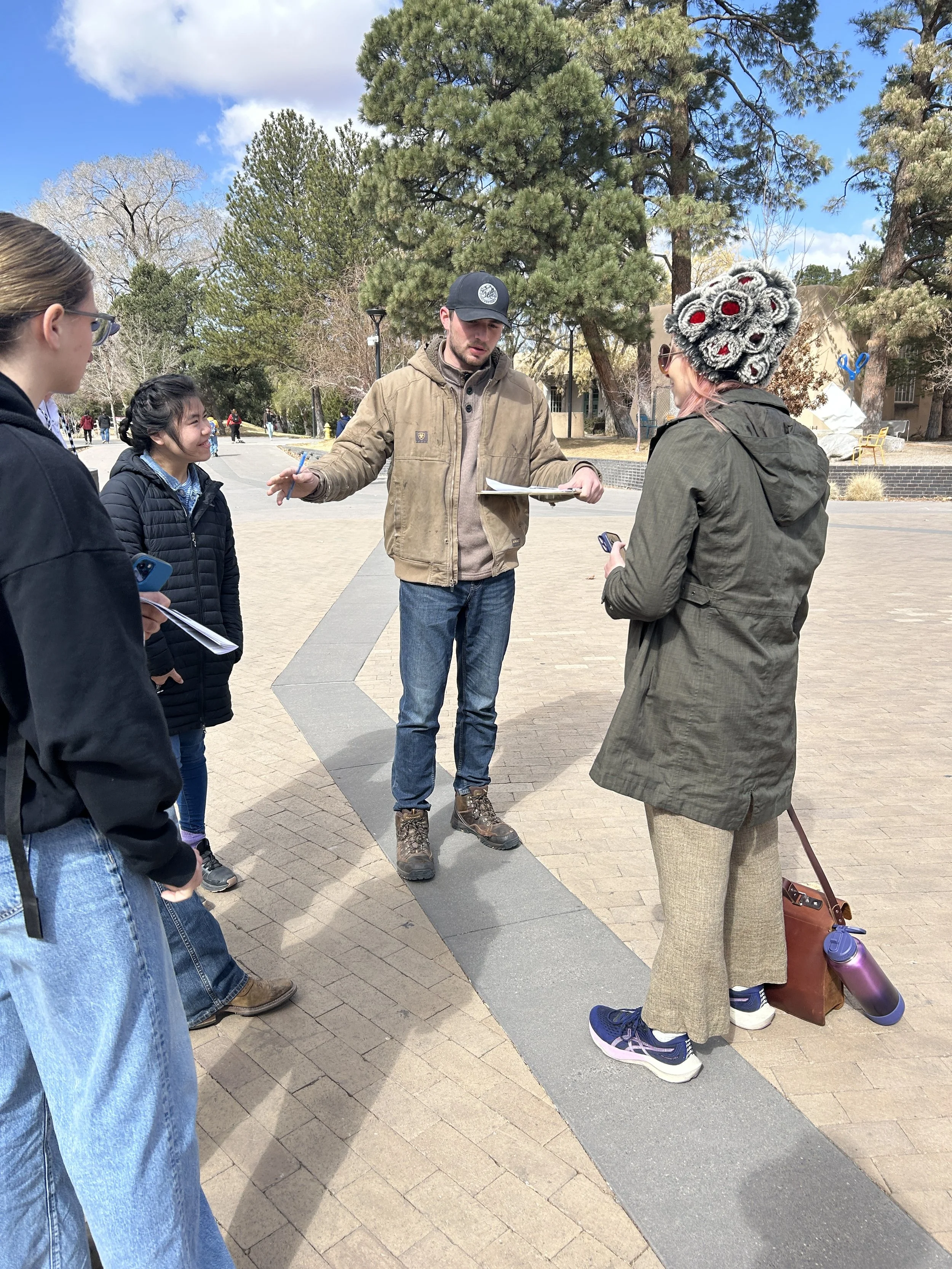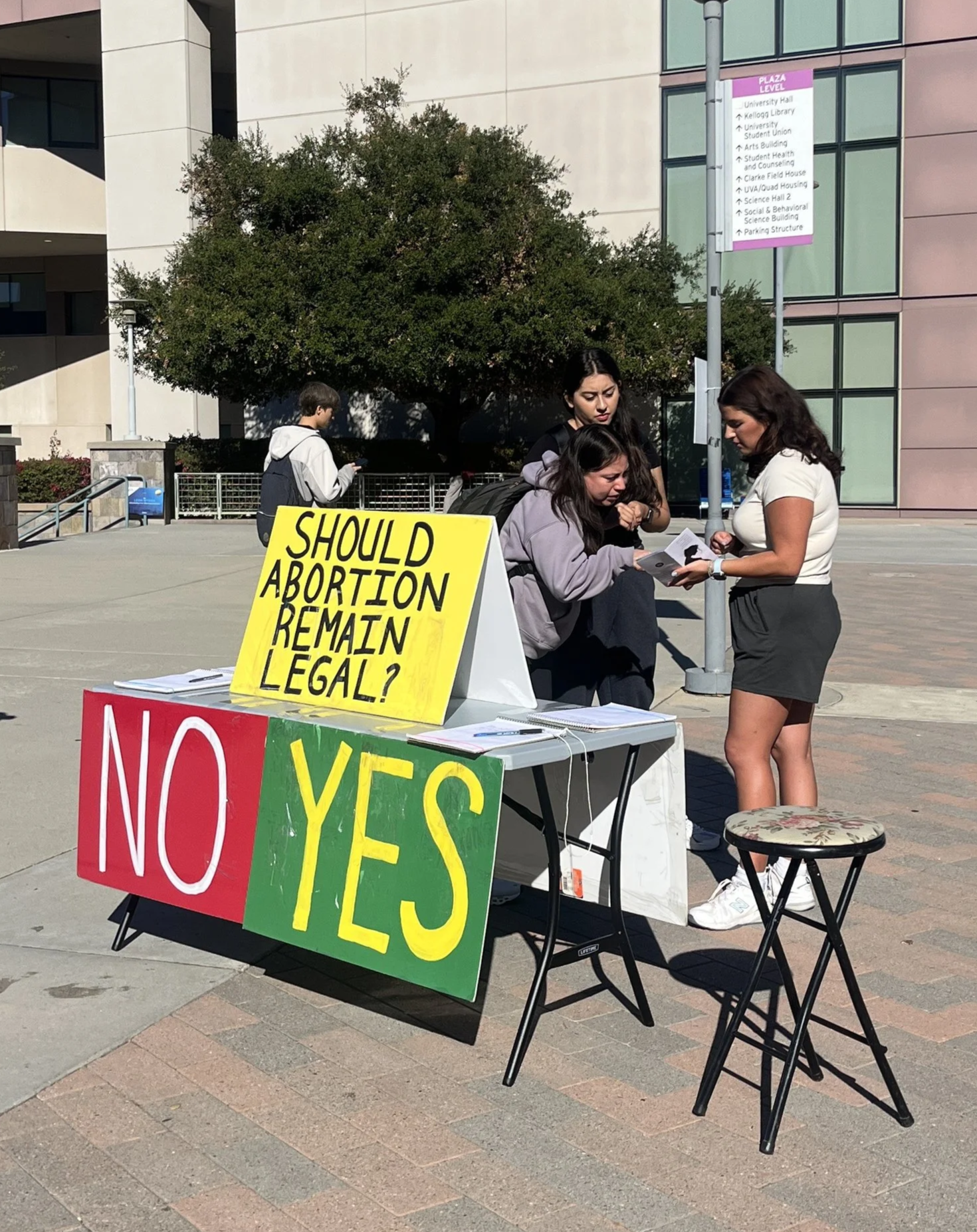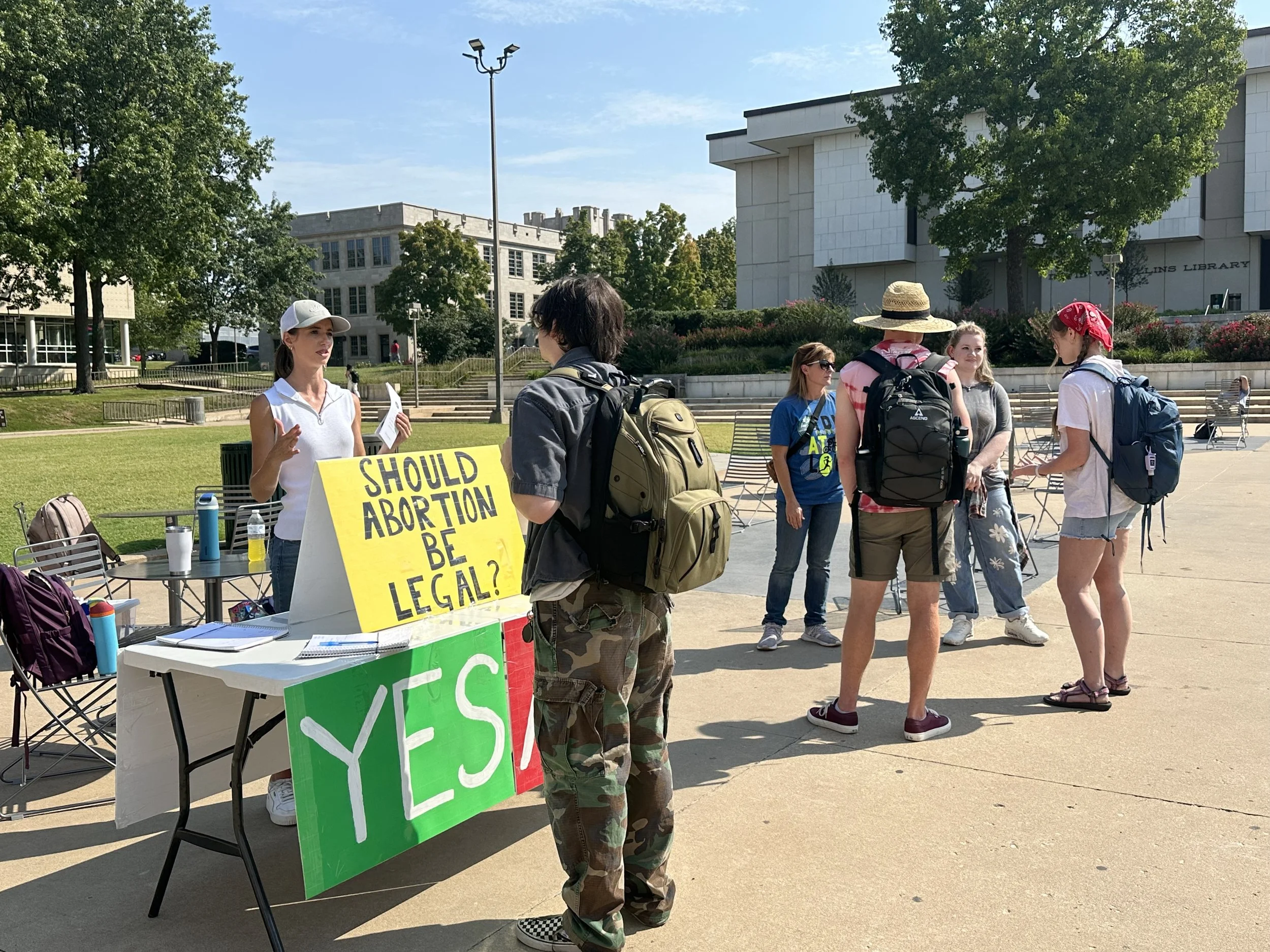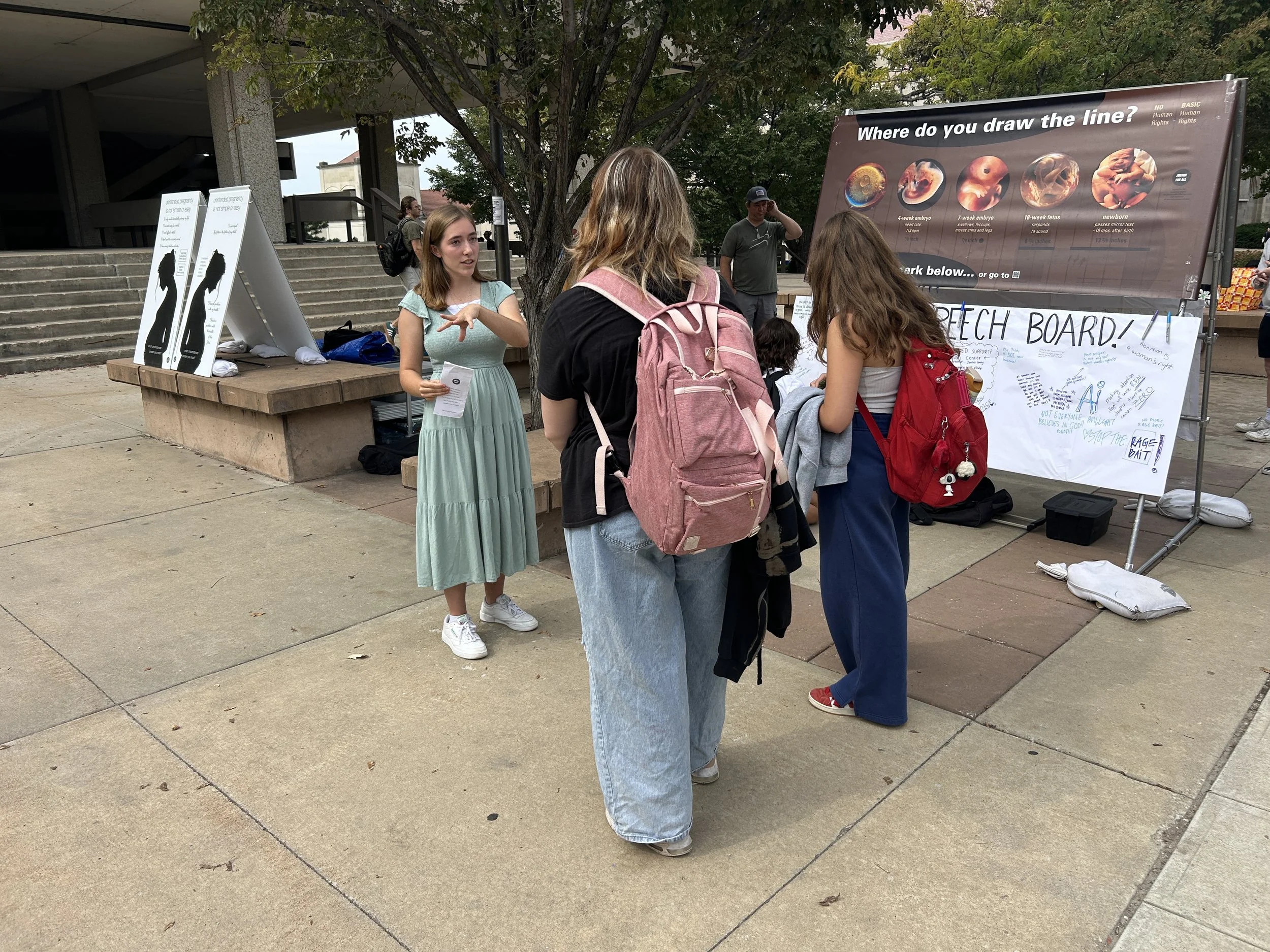Part I: Outreach
Dear Friend,
David, a volunteer at a JFA outreach event (left), creates a conversation with a student in front of the original Justice For All Exhibit.
Since conversations about abortion are essential to making abortion unthinkable, we’ve set a goal of creating 5000 conversations in 2017. Let me explain how we plan to accomplish this goal with God’s help.
You may be a JFA reader who already supports JFA sacrificially or who prays regularly for JFA. Partnering with JFA in each of these ways is vital to creating conversations and making abortion unthinkable. If you are helping us create conversations through your prayers and financial support, it is enough. (Thank you!) But you may want to do more.
As we think about creating conversations about abortion, there’s an unavoidable challenge: abortion just isn’t a topic that lends itself to easy, everyday-life conversation. It’s personal. It’s sensitive. It’s dark. It’s troubling. Many pro-life advocates fear conversations about abortion. They fear they won’t know what to say. They fear losing a friendship. They fear offending someone unintentionally. Opportunities to bring up the topic in a natural way are rare. In this month’s letter, I’ll discuss one remedy we have for this challenge: JFA’s outreach events. In next month’s letter, I’ll discuss our second remedy: JFA’s tools which help you start abortion conversations with friends and family.
JFA Outreach Events Produce More Conversations Because Talking to Strangers Is Easier
Our outreach events, especially our large-scale events, are the easiest way for our staff and volunteers to start the conversation about abortion in a way that’s not awkward. As the “Feet Work” part of our training program, these events create an objective spectacle that naturally invites consideration and comment from both volunteers and passersby.
The larger the group of volunteers joining us on campus, the more conversations these events generate. Indeed, sometimes the crowd of volunteers itself becomes a part of the reason passersby stop to talk. So, you can help us multiply the conversations these events produce by attending as a mission trip participant and using the event to talk to pro-choice advocates.
Here’s one more way you can multiply the conversations our outreach events produce: Introduce us. We can produce more events and larger events if we meet college students who invite us to their campuses and high school teachers and administrators who invite us to train their students through a field trip to a JFA outreach event.
Whether we are conducting large-scale outreach events (many trainers and volunteers in conversations) or filling in gaps in our schedule with smaller events (fewer volunteers), please pray that God will help us create 5000 conversations through these events in 2017. Let’s pray also that God uses our conversations to make abortion unthinkable.
In Christ,
Steve Wagner
Executive Director
P.S. To sum up, here are four ways you can help JFA produce the most conversations possible from its outreach events:
- Attend a JFA mission trip.
- Introduce us to one church.
- Introduce us to one college student you know at a large public university.
- Introduce us to a private high school (Catholic, Orthodox, Protestant, Evangelical, etc.), homeschool group, or college group which would like to invite JFA to train its students.
















